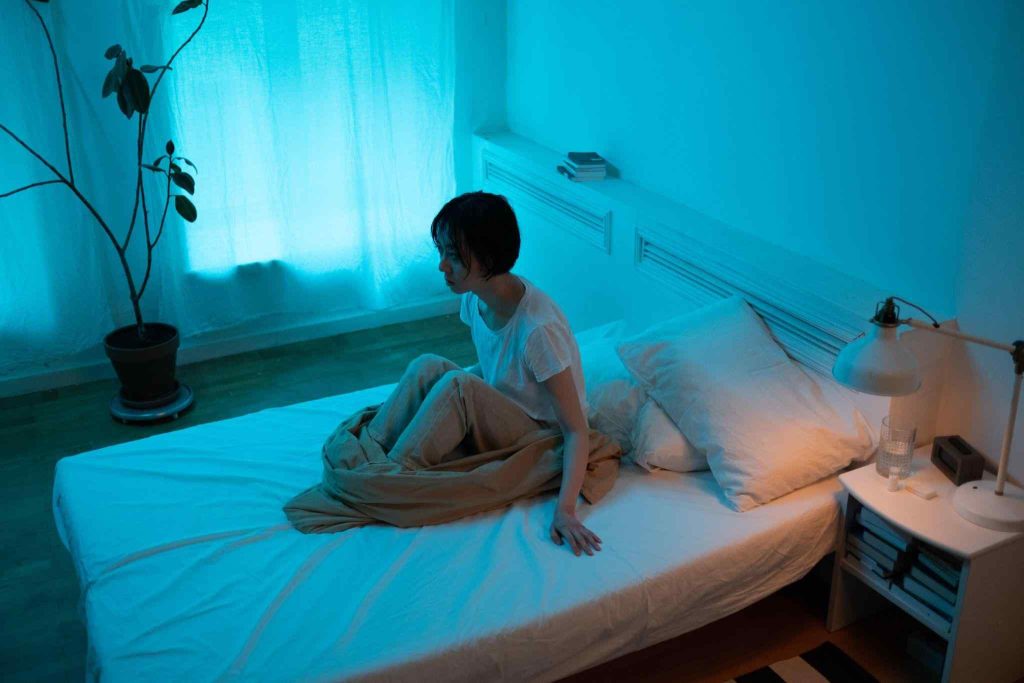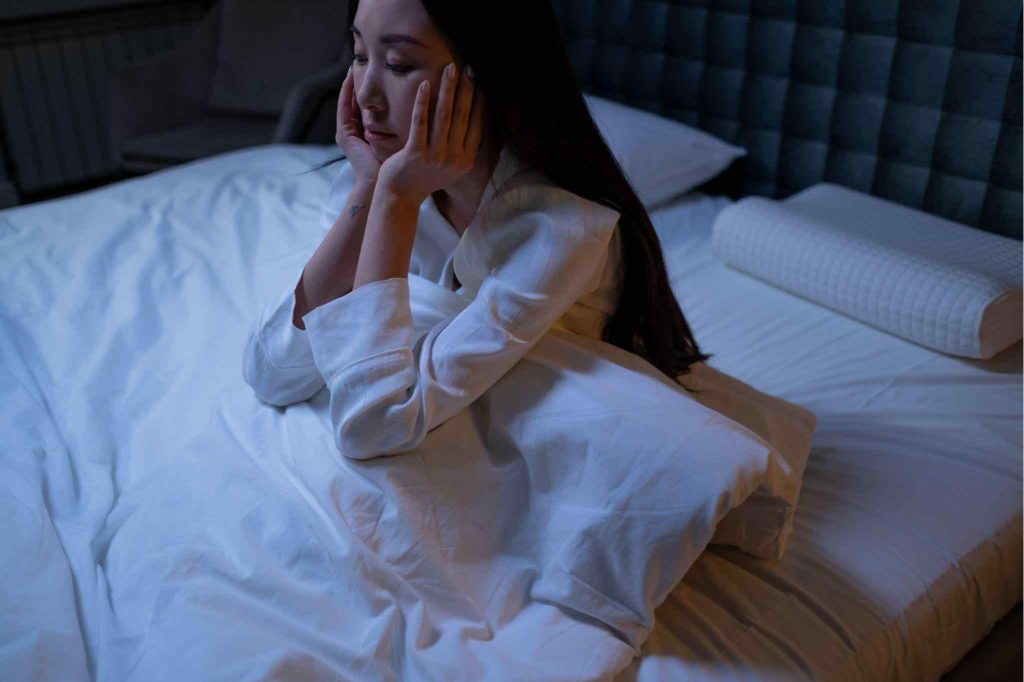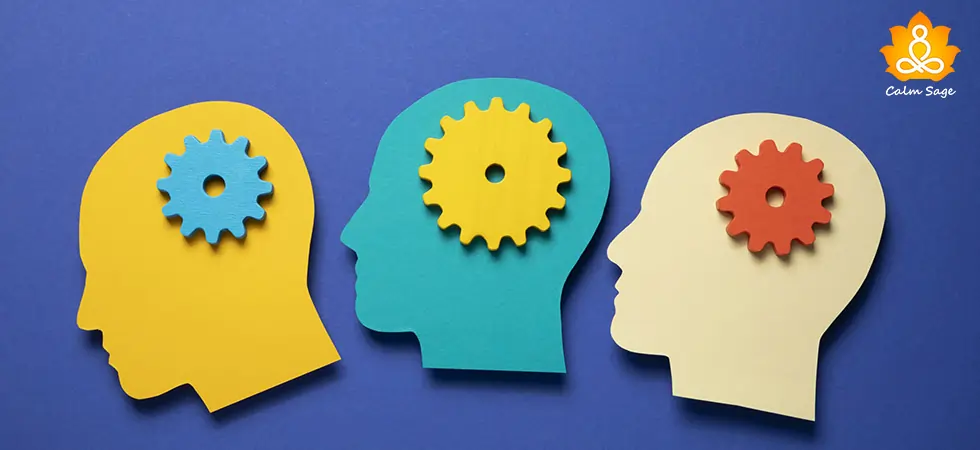Nocturnal Panic Attacks: Signs, Causes, And How to Cope With Them

We might not think too much about it, but there is an undeniable connection between our sleep and anxiety. When you go without a restful sleep, your anxiety can become more prominent, making it even more challenging to cope with the worsening anxiety symptoms. And the more anxious you are, the more you put yourself at risk of sleep disorders, namely insomnia.
And even if you can fall asleep easily, there could be times when you wake up in the middle of the night, drenched in a cold sweat and goosebumps, shaking and trembling. And, who can bear to fall asleep again after an episode like that? And so, the cycle continues.
Anxiety is terrible at its worst and panic attacks can be frightening at their best. When you have a panic attack in the middle of the day, it can be scary, but when you experience the same at night, it can be downright terrifying. Panic attacks in the night can be termed, “Nocturnal Panic Attacks”
And that’s what we’re exploring in this article. Keep reading to learn what are nocturnal or nighttime panic attacks, what causes them, the symptoms you need to know, and how you can cope with panic attacks at night.
What Are Nocturnal Panic Attacks?

A nocturnal or nighttime panic attack is when you experience the symptoms of panic attacks when you’re sleeping without any obvious reasons or triggers. Nighttime panic attacks can wake you up from your sleep and can cause you to experience heavy breathing, chills, shortness of breath, and rapid heartbeat. The signs of a panic attack while sleeping can be distressing and they can mimic those of a heart attack.
While they last for a few minutes, it can take some time to calm yourself down and go back to sleep. If you experience nighttime panic attacks frequently, then you may also be susceptible to daytime panic attacks.
What Causes Panic Attacks at Night?
Researchers have stated that many factors contribute to the development of nocturnal panic attacks. While the exact causes of panic attacks at night might otherwise be unknown, here are some common factors that might contribute to such panic attacks;
- Existing symptoms of depression
- Existing generalized anxiety disorder
- Existing sleep disorders, namely insomnia
- Existing panic disorders
- Chemical imbalances in the brain
- Family history of panic disorders or attacks
A study from the Journal Of Korean Medical Science suggests that people diagnosed with panic disorders showed signs of panic symptoms, insomnia, and depression. It is also suggested by others that if you’re prone to nocturnal panic attacks then you might struggle with uncertainties in your life.
The Signs And Symptoms to Know

As stated before, nocturnal or nighttime panic attacks happen without an obvious cause or trigger. However, it can bring with it some strong sensations such as rapid heartbeat, hyperventilation, chest pains, etc. Along with them, it’s common to experience physical loss of control as well.
Here are other common signs and symptoms of nocturnal panic attacks that you should know about;
- Chest pain
- Chills or hot flashes
- Feeling like you’re choking
- Derealization or depersonalization
- Experiencing dizziness
- Feeling fear of dying
- Feeling a loss of control
- Feeling out of breath
- Experiencing nausea
- Experiencing numbness
- Fast heart rate
- Experiencing shortness of breath
- Sweating, trembling, or shaking
- Trouble going back to sleep
While panic attacks can be related to existing panic disorders, they can also accompany other mental health disorders such as depression, post-traumatic stress disorder (PTSD), anxiety disorders, and specific phobias.
Nocturnal Panic Attacks And Night Terrors: The Difference
There have been debates about whether nocturnal panic attacks are the same as night terrors. Night terrors are a type of sleep disorder that causes intense fear and while the symptoms and feelings they bring might be similar, night terrors and nocturnal panic attacks are quite different.
Night terrors, just like nocturnal panic attacks might cause symptoms such as hyperventilation, rapid heart rate, sweating, and trembling, they do not share characteristic symptoms of nocturnal panic attacks such as aggression, yelling, and screaming.
Another difference is that people who wake from a nocturnal panic attack remember their experience but people who wake from night terrors might have no memory of the experience.
Can Nocturnal Panic Attacks be Treated?

No matter if you’re experiencing daytime or nighttime panic attacks, help is there and recovery is possible. Reaching out to a professional for an appropriate diagnosis and treatment can help you find the true causes of your condition, the intensity of the symptoms, and what plan of treatment can suit you best.
Here are some common treatment options available to treat panic attacks at night;
-
Psychotherapy;
One of the most common psychotherapy treatments suggested by professionals to treat panic attacks is cognitive-behavioral therapy (CBT). CBT has been proven effective in treating panic attacks at night as well as daytime panic attacks.
-
Medications;
Along with therapy, your physician may refer you to a psychiatrist if the intensity of the symptoms is too severe. A psychiatrist may prescribe you antianxiety and antidepressant medications to treat your nocturnal panic attack symptoms.
-
Other Coping Tips;
Other things you can do to cope with panic attacks during sleep can include deep breathing exercises before bed, improving your positive self-talk, talking to a trusted loved one, practicing relaxing techniques, and calming your mind before you go to sleep.
Other prevention strategies you can adopt to avoid waking up with a panic attack can include;
- Limiting the caffeine intake in the evening
- Eating a balanced diet
- Getting regular exercise
- Practicing stress management techniques
- Improving your sleep schedule
Even then, if your panic attacks are negatively affecting the other aspects of your life, it is recommended that you speak to a professional for a better analysis of your condition and the treatment options available to you.
What Next?
When you wake up with a panic attack at night, it could mean less in terms of nightmares and more in terms of you struggling with an undiagnosed sleep or panic disorder. If you’re experiencing nocturnal panic attacks, then it could also be a sign of you having anxiety or an underlying anxiety disorder.
If that’s the case, then it is recommended that you speak to a professional for a better diagnosis and treatment. A therapist can help you understand the causes of your panic attack and teach you tools to cope with panic attacks at night.
To reach out for professional help and support, click on the link below.

Great for a large network of licensed therapists
-
$60 to $90/week, billed every 4 weeks
-
Therapy via messaging, phone, or live video chat
-
Flexible cancellation at any time
20% off your first month

Great for CBT Based therapists
-
$40/week, billed every 4 weeks
-
Therapy via messaging, phone, or live video chat
-
Specialization for CBT based Therapy
20% off your first month

Best for Treatment Plants
-
$60 to $90/week, billed every 4 weeks
-
Therapy via messaging, phone, or live video chat
-
Flexible cancellation at any time
$100 off your first month with code SPACE
I hope this article helped you understand what are nighttime or nocturnal panic attacks, what causes them, the symptoms you should know, and how to treat and cope with panic attacks at night. For more, you can write to us at info@calmsage.com. You can also share your thoughts in the comments below.
Take Care!




















